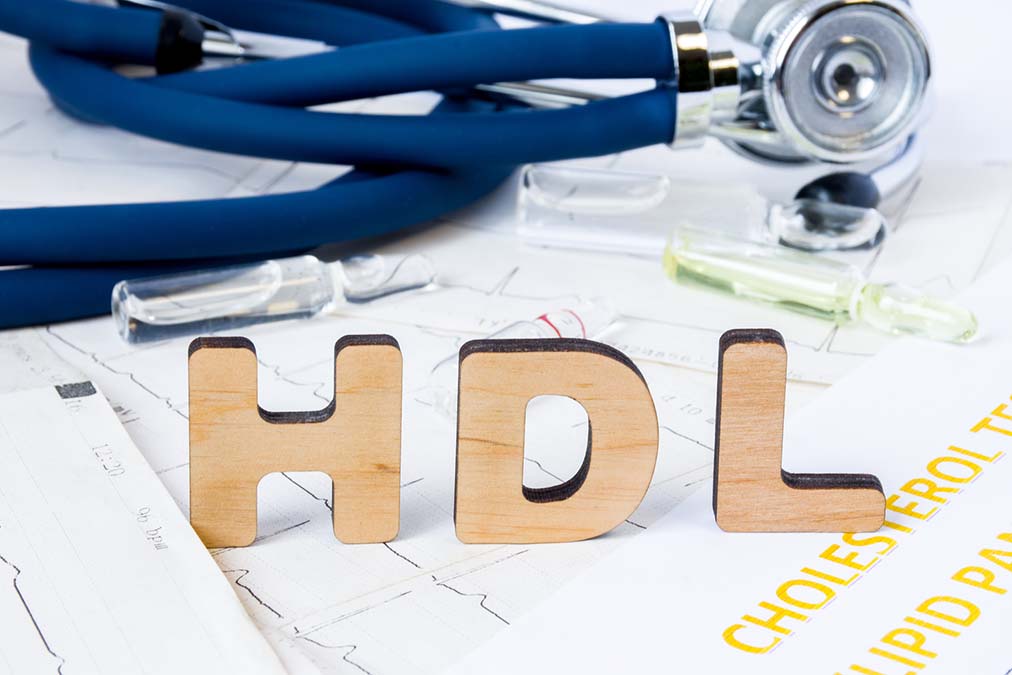 We have all heard that it is healthy to have high HDL cholesterol (good cholesterol).
We have all heard that it is healthy to have high HDL cholesterol (good cholesterol).
But a study in the latest edition of the Journal of Clinical Endocrinology & Metabolism now shows that this is only partly true.
Because this time the researchers were not just looking at heart disease. They also looked at HDL cholesterol and diabetes…
…and that changed everything!
The authors were interested in the effects of HDL cholesterol scores on the development of diabetes – not just in HDL scores measured once, but in HDL levels measured over several visits over four years.
For data, they used health information from the Korean National Health Insurance System. In their sample, they included the information of 5,114,735 adults free from diabetes, who had undergone several cholesterol tests between 2009 and 2013.
They immediately noticed that some of the subject’s HDL cholesterol varied from visit to visit, and from this data, they divided the subjects into four groups:
1. People with low average HDL and low variability in their HDL scores from test to test.
2. People with high average HDL and low variability in their HDL scores.
3. People with low average HDL and high variability in their HDL scores.
4. People with high average HDL and high variability in their HDL scores.
During around five years of observation, their subjects experienced 122,192 cases of diabetes, as defined by at least one insurance claim per year for a diabetes drug prescription.
They found that people with a high average HDL score and low variability in their HDL scores were the healthiest.
People with a low average HDL score or high HDL variability were the most likely to develop diabetes, and those with both a low score and a high variability had the highest risk.
Compared to the high average, low variability group:
1. The high average, high variability group was 20 percent more likely to have diabetes.
2. The low average, low variability group was 35 percent more likely to have diabetes.
3. The low average, high variability group was 40 percent more likely to have diabetes.
This means that we should try to keep our HDL cholesterol stable and high to avoid diabetes. And the same is probably true for heart disease.

 Overcoming IBD
Overcoming IBD Multiple Sclerosis
Multiple Sclerosis Banishing Bronchitis
Banishing Bronchitis Gum Disease Gone
Gum Disease Gone Overcoming Onychomycosis
Overcoming Onychomycosis Neuropathy No More
Neuropathy No More The Prostate Protocol
The Prostate Protocol Brain Booster
Brain Booster
 Ironbound
Ironbound
 Solution for Shingles
Solution for Shingles
 The Bone Density Solution
The Bone Density Solution
 The Ultimate Healing Protocol
The Ultimate Healing Protocol
 The Parkinson's Protocol
The Parkinson's Protocol
 The Chronic Kidney Disease Solution
The Chronic Kidney Disease Solution
 Overthrowing Anxiety
Overthrowing Anxiety The Fatty Liver Solution
The Fatty Liver Solution The Hypothyroidism Solution
The Hypothyroidism Solution
 The End of Gout
The End of Gout The Blood Pressure Program
The Blood Pressure Program
 The Oxigized Cholesterol Strategy
The Oxigized Cholesterol Strategy
 Stop Snoring And Sleep Apnea Program
Stop Snoring And Sleep Apnea Program
 The Arthritis Strategy
The Arthritis Strategy The Vertigo & Dizziness Program
The Vertigo & Dizziness Program The 3-Step Diabetes Strategy
The 3-Step Diabetes Strategy Hemorrhoids Healing Protocol
Hemorrhoids Healing Protocol The Erectile Dysfunction Master
The Erectile Dysfunction Master Weight Loss Breeze
Weight Loss Breeze The IBS Program
The IBS Program The Insomnia Program
The Insomnia Program The Migraine and Headache Program
The Migraine and Headache Program The Neck Pain Solution
The Neck Pain Solution The Menopause Solution
The Menopause Solution The Ejaculation Master
The Ejaculation Master The TMJ Solution
The TMJ Solution The Acid Reflux Solution
The Acid Reflux Solution The Fibromyalgia Solution
The Fibromyalgia Solution The Psoriasis Strategy
The Psoriasis Strategy